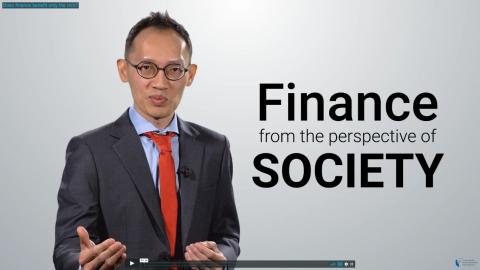Singapore, 6 December 2019 (Friday) – The Lee Kong Chian School of Business (LKCSB) at Singapore Management University (SMU) is offering a blended learning model for its Master of Science in Management (MiM) programme. Commencing in July 2020, the programme stands out for fusing an efficient online learning experience with the opportunity for campus interaction with peers and faculty in person.
The blended MiM programme has been created to meet the needs of busy working professionals who would like the flexibility to learn at their own pace within a full-fledged postgraduate programme, while continuing to stay in their jobs. This programme offers ambitious students a distinctive advantage of leveraging technology to accelerate their learning trajectories in parallel to pursuing full-time careers.
The 18-month programme comprises 13 to 15 days of face-to-face interaction at SMU’s city campus, and learning through online engagement with faculty and peers for the rest of the programme. In terms of online learning, students will be expected to commit at least 15 hours weekly. Through video-conferencing, pre-recorded lectures and web-based discussions mounted on a technology platform designed for interactive business education, students can analyse, debate and tackle case studies, assignments and quizzes. Students benefit from the ease with which they can review online lessons or replay videos to reinforce concepts and to fit individual learning preferences, attention spans and professional commitments.
Dr Pascale Crama, Associate Professor of Operations Management and Academic Director of Blended Programmes, Singapore Management University, said, “With the blended MiM programme, technology serves to bridge students situated across geographies, accelerating their learning in a cost-efficient and time-efficient manner, as well as making collaboration among peers and SMU faculty easier.”
In-class curriculum for students comprises a business negotiation module as well as an optional Business Study Mission, which aims to provide a hands-on experience and a glimpse into opportunities within a rapidly developing business environment in a particular city of region. Students will participate in career workshops and networking events facilitated by SMU’s Office of Postgraduate Career Services.
“As far as our technology platform optimises the digital learning experience for students, we recognise the huge value for people to engage each other in person. This is why we are keen to welcome students enrolled in our Blended MiM programme to immerse themselves in the premium experiences that our world-class city campus offers. SMU, being strategically located in downtown Singapore, and possessing strong linkages with the business community in Singapore and Asia, offers students rich opportunities to ask questions, network and meet faculty, alumni and prospective employers,” commented Dr Crama.
Benefits of blended learning
SMU is one of the first business schools in Asia to have invested in the necessary technology to deliver on an online learning experience for students that is both multifaceted and enriching. In 2019, LKCSB delivered 5 newly developed courses in a blended format to its students using the cutting-edge and custom-built online learning platform designed by Insendi. With the Blended MiM programme, the number of courses delivered using blended methodology will be doubled. Refer to Annex A for the list of LKCSB’s blended courses.
“As a business school that is closely attuned to industry shifts, we made the decision to adapt our education and fully develop the capabilities to offer an immersive online learning environment that meets the needs of our students,” Dr Crama said.
One of the first courses developed under LKCSB’s blended initiative was Finance, which was launched to postgraduate students in January 2019. Associate Professor Roger Loh, Area Coordinator for the Finance group at LKCSB, was one of the pioneer group of faculty in SMU to invest about a few days in a custom-built studio, recording several hours of short videos, including external interviews, for the module.

Associate Prof Loh highlighted his view that blended learning is a more efficient way to deliver content to students. He commented, “With blended learning, the best version of a particular course becomes scalable. For example, the traditional means of classroom teaching means that a Finance module may be delivered differently by different instructors. The blended platform helps our students to absorb finance principles that are now taught by one or two anchor faculty members who can deliver content consistently across a digital learning environment.”
He added that blended learning benefits students by incentivising them to be active and to keep pace with the course content rather than ignore the material until it is time to study for the exams. Illustrating this point with an example, Associate Prof Loh said, “When I teach the principle of systematic risk vs idiosyncratic risk, I get my students to engage in a 30 minute activity to find the beta of a company like Amazon. Students are required to download the data and estimate the regression as part of the online activity. In a face-to-face class, there likely won’t be enough time for many such activities during class time.”
“The advantage of a blended platform is that it offers online learning with the benefit of instructor assistance,” said Associate Prof Loh “Blended learning allows students to be more hands-on, do a lot more than what they would do in a face-to-face session, and ultimately, to learn and achieve more.”
SMU’s MiM programme provides a platform for individuals with no prior business experience to transit successfully to the world of business with an innovative and comprehensive curriculum. The expertise of top notch faculty, paired with practical case studies and an interactive pedagogy, serve to equip students with a deep understanding of business fundamentals and skills for a changing business world.
For more information, visit https://business.smu.edu.sg/master-management/about-mim/structure-blended